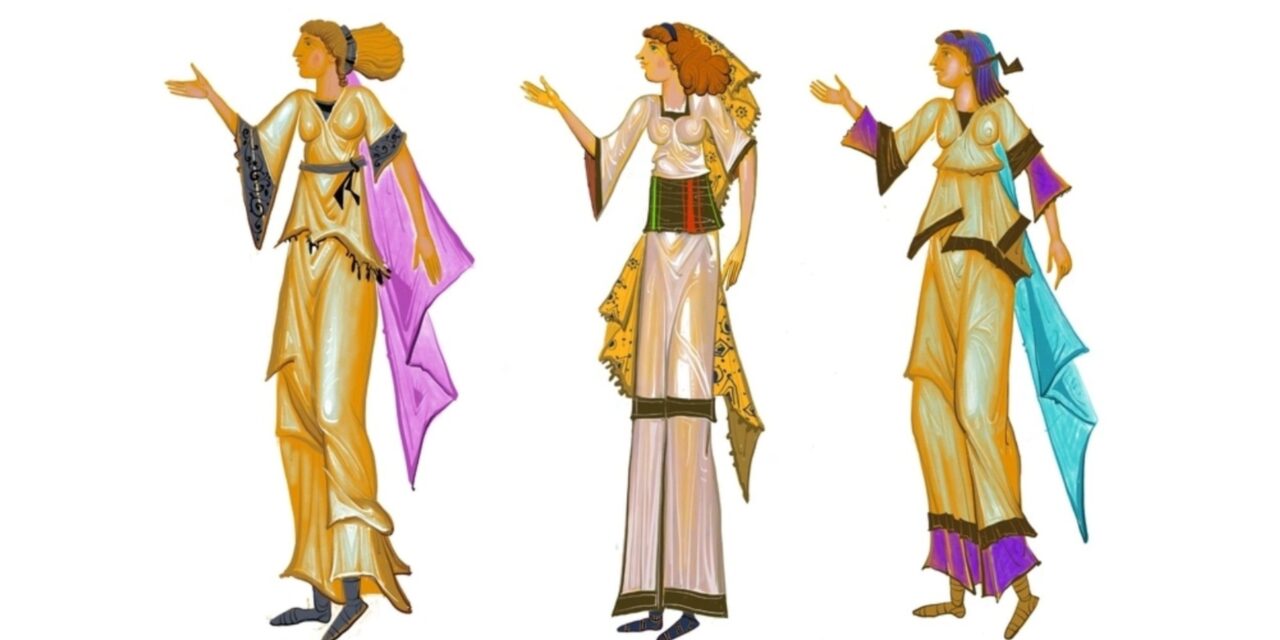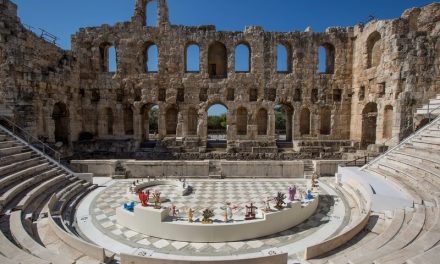The Sacrifice of Jephthah, Dapontes’s idiosyncratic masterpiece, is staged, for the first time in Greece, by Othonion (curtain), an Athens-based artistic group that believes in the value of traditional stage practices and their spiritual benefit for wider audiences. One of the main objectives of the group is to explore the wondrous world of shadow puppet theater through experimentation, creation, and reconstruction of texts or performances. The group was created in the context of a shadow theater course taught by Iossif Vivilakis at the Department of Theater Studies at the National and Kappodistrian University of Athens. Aiming to introduce the audience to a lesser-known, multifaceted repertoire, the group is continuously experimenting with new techniques and styles.
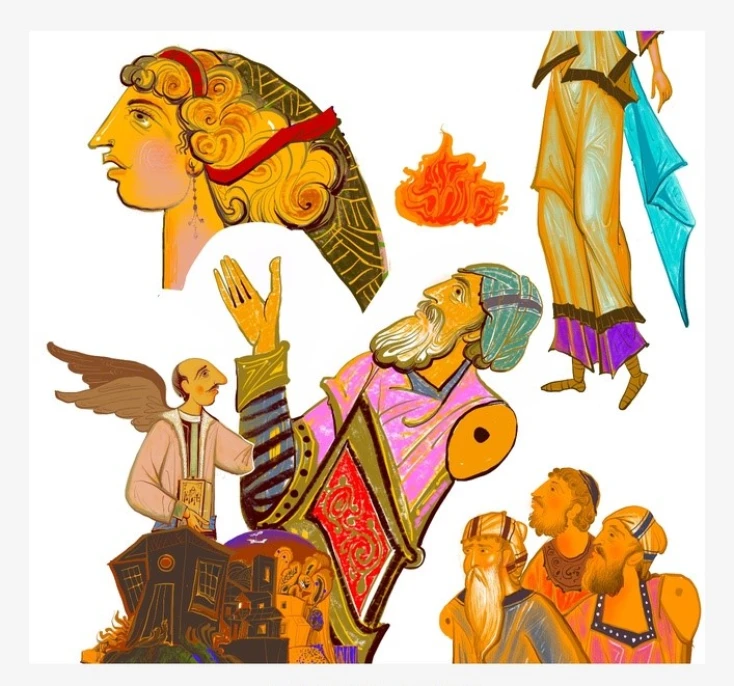
Jephthah, a mighty biblical warrior, leads the battle against the Ammonites. To win, he makes a vow to sacrifice whoever would come out of the door of his house first to greet him. When his daughter was the first to come out of the house, he is now obliged to sacrifice her to God. Oath and sacrifice are the key aspects of the play. On the pretext of a family drama and its horrific ending, the play is a treatise on love and death. It highlights the collapse of Jephthah, a triumphant leader, that is bound to fulfill an impetuous promise.
Caesarios Dapontes,born Constantine, (1713-1784) is one of the most important scholars and poets of modern Hellenism. He received an excellent secular and ecclesiastical education in Skopelos, Constantinople, and Bucharest. At the age of 35, after a brilliant career in Wallachia, he was imprisoned, lost his wife and child, abandoned the world, and went to Mount Athos. His work is innovative and incorporates numerous autobiographical elements. He combines personal confessions, hagiographies, myths, oral traditions, biblical stories, dramatic monologues and folk songs.
Dapontes deliberately used simple language so that he could be better understood by the Greek-speaking Orthodox population. It is worth mentioning that the production uses the original script, so this allows us to reevaluate it.
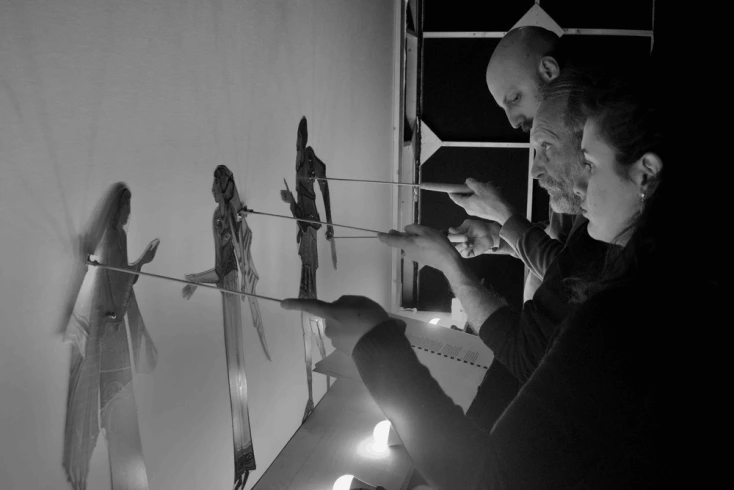
Dapontes is a prolific writer and a captivating individual who left a lasting mark on the cultural landscape of the Greek-speaking world of his time. He has an amazing skill in narrating the passions of his heroes that come from myths and legends, the Bible and tradition, traditional songs and laments.
The Sacrifice of Jephthah (1748) is an original work, unknown to broader audiences. It is essentially inspired by a biblical story, however, it is enriched with new characters and various other references as well as elements of Eastern and Western culture. Daponte’s text alludes to the sacrifice of Iphighenia. In this respect, it is influenced by ancient tragedy. At the same time, it brings together elements related to paganism, drama, didacticism, irony, rituals, laments, and folk tradition. In many ways, it even relates to the works of the Saints of the Western theatre. The story of Jephthah was quite well-known in the Western tradition until the 19th century. It was performed in Jesuit schools and made into an oratorio by Handel in 1751. Dapontes is the first to present its Greek version.
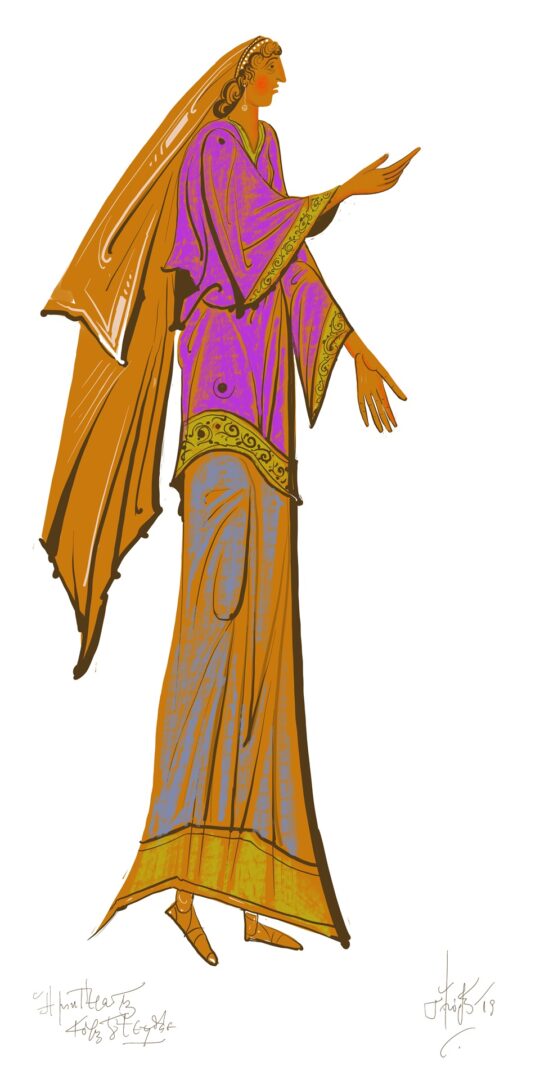
The Sacrifice of Jephthah is a masterpiece written when Dapontes was imprisoned in Istanbul. This extraordinary work was created in moments of exclusion and loneliness. To escape isolation, Dapontes comes up with the idea to leave his imprisoned body and travel through time. Along the way, he meets Jephthah and witnesses all the major events of his life. His vow to God, the meeting with his daughter, and, finally, her sacrifice.
Dapontesdistances himself from the biblical content of the story. He incorporates ancient female deities, nymphs, sirens, and Graces, creating a dramatic framework that alludes to ancient tragedy, a psychodrama that focuses on the deep relationship between father and daughter and the merciless fate that unites them.

Vivilakis, Tzivelekis, Danellis ,Michalaki
Iossif Vivilakis, at the helm of the Othonion group and director of the play, explores the theatricality, the poetic aspect of the text, and the mechanisms Dapontes uses to present scenes of intense action. Dapontes was one of those scholars who experimented with tragedy. At the time, there were no theatres, as in Western Europe. The dominant form of entertainment during the Ottoman Empire was the shadow theater. This is how Vivilakis came up with the idea to present the play using the traditional art of shadow theater.
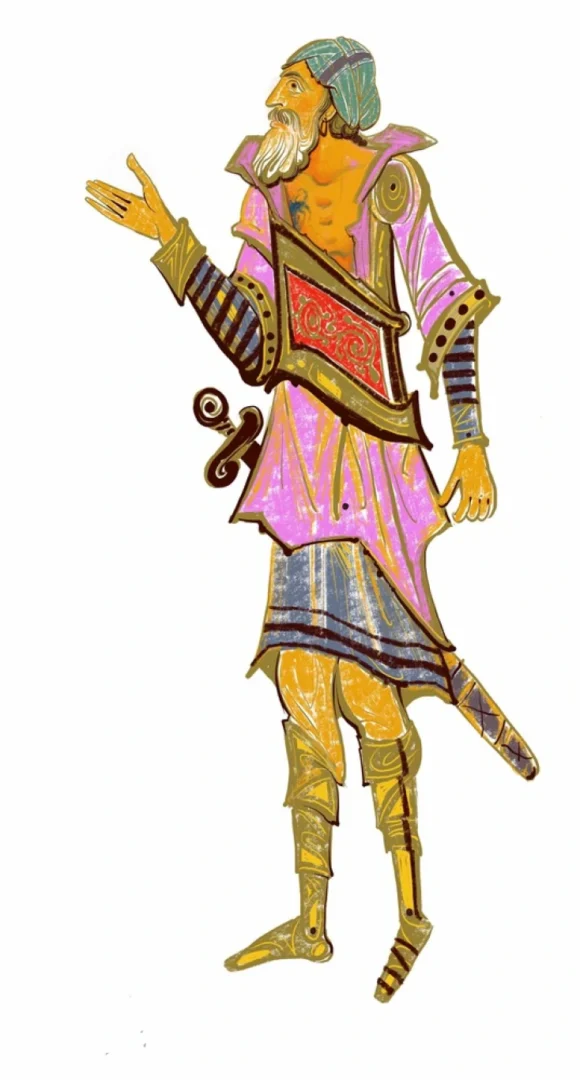
The play draws the audience to the state of catharsis. Drawing inspiration from the structure of ancient Greek drama, the protagonist of the play moves towards his catastrophe, due to his failure. Jephthah’s condition resonates with Daponte’s tragic story. However, there is a slight sense of irony and humor, especially at the beginning of the play. Two talented puppeteers play a total of fifteen roles, male and female; Jephthah, his daughter, the chorus, and so on.

Foteinopoulou, Tamiolakis, Papanikolaou, Kordis
One of the show’s most impressive elements is how shadow puppets are presented. Created by renowned icon painter George Kordis, the shadow puppets assume spiritual characteristics. Drawing inspiration from shadow theater, Cycladic and Minoan frescos as well as byzantine art, Kordis creates colorful, ethereal, refined, and sophisticated shadow puppets and stage sets.
The show premieres September 26th at Kalliroi Theatre.
D.T.
TAGS: ARTS

